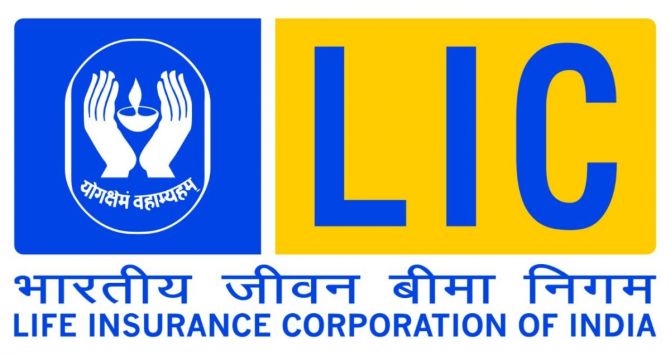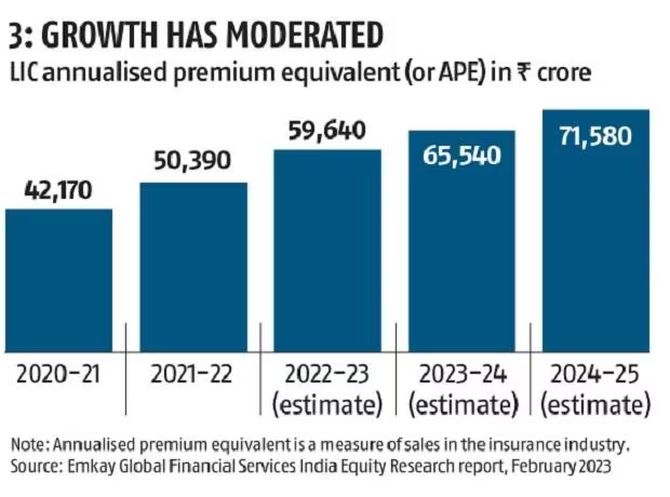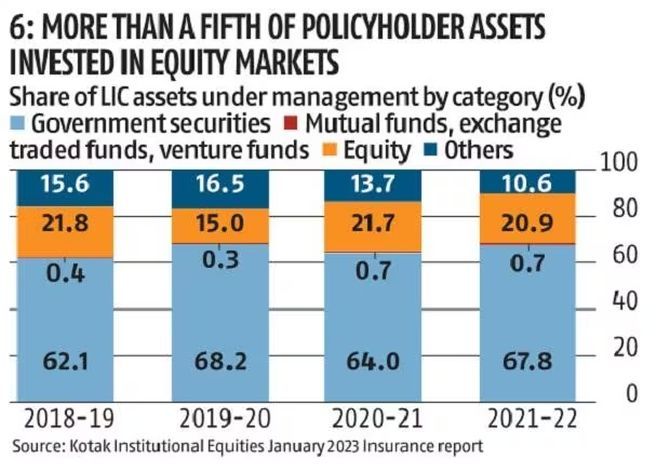The decline in LIC's share price makes it the biggest wealth destroyer among IPOs which hit the market after COVID-19 took hold globally in 2020.

Since its listing, peers belonging predominantly to the private sector have largely outpaced the Life Insurance Corporation of India, which was originally formed by merging 245 private players in 1956.
The stock dropped 8 per cent on the listing day, and has declined by more than a third since.
It is down over 40 per cent in total from the price offered to shareholders who bought the stock in its initial public offering (IPO).
The S&P BSE Sensex has risen nearly 14 per cent since then (chart 1).

The decline in LIC's share price makes it the biggest wealth destroyer among IPOs which hit the market after COVID-19 took hold globally in 2020.
The total wealth erosion of over Rs 2 trillion made it a bigger wealth destroyer than all the others in the top five put together (chart 2).

There are some headwinds on the business side. The growth in LIC's annualised premium equivalent (APE), a measure of sales in the insurance industry, has slowed.
The insurer has also seen some loss of market share, especially when it comes to the individual business segment (charts 3, 4).


Private players have diversified ways of sourcing business, while LIC is more dependent on its agents.
This can affect business in the event of shutdowns like the pandemic or if there are regulatory issues in getting new agents, according to analysts (chart 5).

Other troubles include taxation of high-value insurance policies, and the fact that a large part of LIC's surplus goes to policy holders instead of shareholders, though it has moved to increase the shareholder proportion to 10 per cent by 2024-25, from 5 per cent earlier.
A recent report of US-based short-seller Hindenburg Research alleging irregularities in the Adani group affected sentiment.
The insurance behemoth has clarified that Adani accounts for less than 1 per cent of its investments.
It has also increased its stake marginally in at least four out of seven Adani group companies after the Hindenburg report.
A large portion of its book can be affected by capital market fluctuations, according to analysts.
The equity market portfolio accounts for over 20 per cent of assets.
Another headwind is rise in interest rates.
Over 60 per cent of assets are invested in government securities (chart 6).











